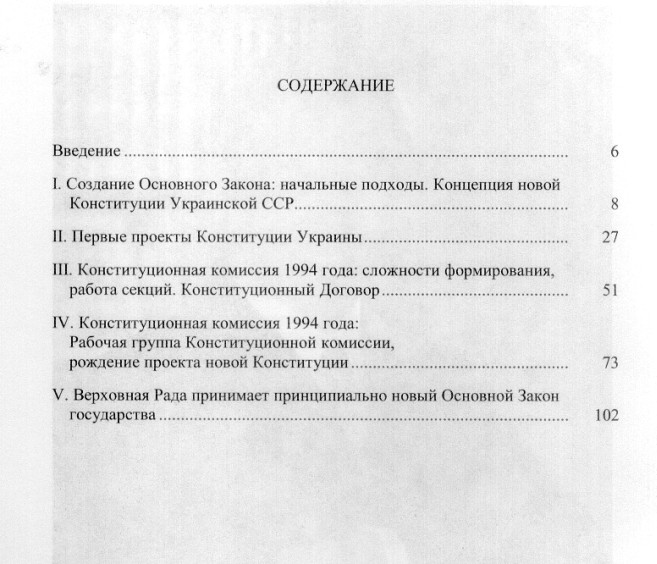Wroclaw University Library
Teaching 2030 : what we must do for our students and our public schools : now and in the future
Verlag
Acknowledgments . . ix
Prologue: We Cannot Create What We Cannot Imagine . . xiii
1. The Teachers of 2030 and a Hopeful Vision . . 1
Students of Today and Tomorrow . . 2
"Imagineering" the Future: Learning and Teaching in the Year 2030 . . 5
In 2030, Teaching Is Understood as Complex Work . . 6
In 2030, New Trust Remakes Teaching and Learning . . 8
In 2030, Confronting Educational Inequities . . 12
Tipping Toward a 21st-century Profession . . 15
Emergent Realities Shape the Teaching Profession of 2030 . . 16
2. A Very Brief History of Teaching in America . . 21
From Women's Work to Industrial Age Automatons . . 22
Thorndike Beats Dewey in the Early Struggle . . 24
"The Great Society" Looks to Teaching for Answers . . 26
Unions Ascend as Teaching Pressures Mount . . 28
Professionalism Versus Deregulation in the Late 20th Century . . 30
Looking Forward—with Some Hope and Audacity . . 36
3. Emergent Reality # 1: A Transformed Learning Ecology for Students and Teachers . . 39
Learning from Isaiah, Ziad, and Many Other Students . . 44
Confronting the Limitations of 20th-century Standardized Tests and Accountability . . 50
Improve Measures to Improve teaching and Learning . . 55
A Different Kind of Accountability . . 60
A New Learning Ecology for Teachers Too . . 63
Working with Special-Needs Students . . 67
Teachers Working with Each Other . . 70
4. Emergent Reality #2: Seamless Connections In and Out of Cyberspace . . 75
Melding the Virtual and Physical Worlds . . 81
The Diverse Needs of Students Today and the Schools Tomorrow . . 85
The Community-Centered School . . 87
We're Wasting Time Arguing About 20th-century Schools . . 92
Connectivity for All . . 97
5. Emergent Reality #3: Differentiated Pathways and Careers for a 21st-century Profession . . 101
Outgrowing a One-Size-Fits-All Profession . . 101
Redefining the Profession for Results-Oriented Teaching . . 107
Teacher Education for a Differentiated, Results-Oriented Profession . . 116
Professional Compensation for a Differentiated Profession . . 125
6. Emergent Reality #4: Teacherpreneurism and a Future of Innovation . . 135
Scaling and Spreading Teacher Expertise . . 135
The Making of Teacherpreneurs . . 141
Teacherpreneurism for Connected Learning . . 145
Teacherpreneurs for Research . . 147
Teacherpreneurs for Best Practice and Policy . . 149
Teacherpreneurs for Community . . 160
Creating a System of Teacherpreneurship . . 162
7. Policy Levers of Change: Accelerating Change and Transforming Teaching . . 167
Change Lever #1: Engage the Public with a New Vision for Teaching and Learning . . 171
Change Lever #2: Rethink School Finance . . 176
Change Lever #3: Redefine Teacher Education and Licensing to Advance the Spread of Effective Teaching . . 183
Change Lever #4: Cultivate Working Conditions That Make High-Needs Schools "Easier To Staff" . . 187
Change Lever #5: Reframe Accountability for Transformative Results . . 192
Change Lever #6: Transform Teacher Unions Into Professional Guilds . . 197
8. Taking Action for a Hopeful Future . . 205
What You Can Do to Build a 21 st-Century Teaching Profession . . 208
Notes . . 215
About the Authors . . 235
Index . . 244
Velikaâ otečestvennaâ vojna v sud'be literatury i kul'tury : istoričeskij opyt kak mirovozzrenčeskij i moral'nyj vybor
Verlag
From the Shtetl to the metropolis
Mikhail Krutikov, Ethnography and Satire in the Yiddish Shtetl Novel of the Haskalah . . 7
Nurit Orchan, Shtetl, Metropolis and in Between. Women's Writing on Life in an Age of Transition, 1881-1914 . . 29
Roland Gruschka, "A New Babylon" - The City in Sholem Asch's Novel Petersburg . . 51
About the authors . . 72
Il bene e gli altri : differenza, universale, solidarietà
Verlag
Premessa . . 7
PARTE PRIMA - Archeologie del bene
Archeologia . . 13
I. Tra etica e filosofia prima. Motivi dell'analogia . . 17
II. Dire il bene: ermeneutica, tomismo e tradizioni narrative . 31
III. Bene e conflitti ermeneutici. Letture tardoantiche e medievali di Etica N. I, 6 . . 46
PARTE SECONDA - Bene ed esistenza
Esistenza . . 95
V. Bene e singolarità. La provocazione di Kierkegaard . . 99
VI. Bene, Valore ed Esistenza. Sartre e l'universale . . 115
VII. Il bene, l'universale, la differenza. 'Classicità'del postmoderno . . 141
PARTE TERZA - L'epoca della solidarietà
Condivisione . . 191
VIII. Solidali o responsabili? . . 195
Indice analitico . . 253
Lengyelország történeti és mitikus kezdetei : a tér alakulása
BEVEZETŐ . . 13
A nemzetről . . 26
A nemzet fogalmának fejlődése a lengyel történetírásban . . 36
A mítoszokról . . 41
A mítoszok szerepének alakulása a lengyel történetírásban . . 54
Etnikai (törzsi) mítoszok és nemzeti mitológia . . 58
A térről . . 62
I. LENGYELORSZÁG TÖRTÉNETI KEZDETEI . . 79
A korai szlávság vázlatos története a szétvándorlástól az első ezredfordulóig . . 81
Viszlánok . . 100
Ledzianok . . 115
Polánok . . 139
II. LENGYELORSZÁG MITIKUS KEZDETEI . . 161
Az ország - mitikus és történelmi tér . . 163
Az ország leírása . . 167
A központok . . 190
A határok . . 230
A tenger és a hegyek . . 248
Két királynő: Vanda és Mária . . 277
KÖVETKEZTETÉSEK . . 327
ZÁRSZÓ . . 363
Historyczne i mityczne początki Polski - Kształtowanie się przestrzeni (Streszczenie) . . 365
The historical and mythical origins of Poland - The formation of space (Summary) . . 375
Rövidítések . . 377
Képjegyzék . . 379
Térképjegyzék . . 381
Felhasznált források és szakirodalom . . 383
Térképkmelléklet . . 409
Tepaliks kiekvienas šlovę po savęs... : Motiejaus Kazimiero Sarbievijaus poetikos ir poezijos recepcija XVII-XVIII amžiaus LDK jėzuitų edukacijos sistemoje
PRATARMĒ . . 9
TYRIMŲ APŽVALGA . . 15
TYRIMO ŠALTINIAI . . 25
EUROPOS RENESANSO BEI BAROKO ESTETINES IDĖJOS IR M.K. SARBIEVIJAUS POETIKA . . 34
1. Renesanso poetika ir retorika: tradicija, tendencijos prouietnos . . 35
2. XVII a. poetikos ir retorikos transformacijos . . 53
3. Retorika jėzuitų edukacijos sistemoje: tarp Renesanso normatyvizmo ir Baroko kontrastų . . 60
4. Baroko poezijos iššūkiai . . 67
M.K. SARBIEVIJAUS VEIKALO APIE AŠTRŲ IR ŠMAIKŠTŲ STILIŲ SKLAIDA IR INTERPRETACIJOS . . 74
1. Sarbievijaus pedagoginė veikla ir teoriniai jo veikalai . . 75
2. Sarbievijaus traktato Apie aštrų ir šmaikštų stilių novatoriškumas . . 81
3. Teorinės Sarbievijaus idėjos jėzuitų mokslo įstaigose . . 88
4. Akummo teorijos tęsėjai . . 113
M.K. SARBIEVIJAUS POEZIJOS RECEPCIJA: ARS ET EXEMPLUM . . 136
1. Imitacija . . 138
2. Epigrama . . 157
3. Odė . . 200
4. Sarbievijaus poetinė mokykla . . 240
PABAIGA . . 247
ŠALTINIAI . . 251
LITERATŪRA . . 257
SIBI QUISQUE FAMAM SCRIBAT HEREDEM... SUMMARY . . 267
ASMENVARDŽIŲ RODYKLĖ . . 277
VIETOVARDŽIŲ RODYKLĖ . . 283
Znakamìtyâ mìnčane XIX-XX stst. : Mìnsk ì Mìnščyna ŭ lìtaraturnyh tvorah na rubâžy XIX-XX stst. : matèryâly Belaruska-pol'skaj navukovaj kanferèncyì, Mìnsk, 27 krasavìka 2010 g.
Verlag
Istoriâ Konstitucii Ukrainy
Verlag

Lelia’s kiss : imagining gender, sex and marriage in Italian Renaissance comedy
Verlag
Acknowledgments . . ix
Introduction: Lelia's Kiss and Renaissance Comedy . . 3
1 Women in Men's Clothing: Female Cross-Dressing Plays and the Construction of Feminine Identity . . 24
2 Woman with Woman: 'Ma che potra succedermi se io donna amo una Donna?' . . 76
3 Men in Women's Clothing: Male Cross-Dressing Plays and the Construction of Masculine Identity . . 113
4 Pedants, Candlemakers, and Boys: Sodomy and Comedy . . 153
5 The Playing of Matrimony . . 193
Notes . . 233
Bibliography . . 283
Index . . 305
La logica di Ockham
Verlag
Prefazione . . IX
Abbreviazioni . . 3
Introduzione. Ockham e il rinnovamento della 'Logica Modernorum' . . 5
1. La logica di Ockham tra storia e storiografìa . . 5
2. La logica e le altre discipline . . 13
I. La semantica dei termini . . 17
1. I termini e le loro suddivisioni . . 22
1.1. Categoremi e sincategoremi . . 22
1.2. Astratti e concreti . . 29
1.3. Assoluti e connotativi . . 32
1.4. Equivoci, univoci e denominativi . . 35
2. Termini di prima e seconda imposizione e termini di prima e seconda intenzione . . 39
II. Logica e realtà: il primato dell'individuo . . 49
1. Il problema degli universali . . 49
1.1. L'universale è un segno naturale . . 50
1.2. L'universale non è una realtà extramentale . . 50
1.3. L'universale è qualcosa nella mente . . 60
1.4. L'universale è una qualità della mente . . 72
1.5. L'universale è lo stesso atto di intendere . . 73
1.6. La genesi degli universali . . 75
1.7. Quanti e quali sono gli universali . . 77
2. Le categorie . . 82
2.1. La sostanza . . 85
2.2. La qualità . . 88
2.3. La quantità . . 89
2.4. La relazione . . 96
2.5. Azione e Passione . . 102
2.6. Quando, Dove, Posizione e Habitus . . 103
III. Le proprietà dei termini . . 105
1. La significatio . . 108
2. L'appellatio . . 110
3. La copulatio . . 110
4. La suppositio . . 111
IV. Le proposizioni e la dottrina della verità . . 137
1. la suddivisione delle proposizioni . . 140
2. La conversione delle proposizioni . . 145
3. Verità e falsità . . 151
3.1. Le condizioni di verità delle proposizioni assertorie . . 145
3.2. Le condizioni di verità delle proposizioni modali . . 172
3.3. Le condizioni di verità delle proposizioni exponibilia . . 187
3.4. Le condizioni di verità delle proposizioni ipotetiche . . 201
4. Le proposizioni insolubili o antinomie semantiche . . 224
V. L'argomentazione . . 231
1. I sillogismi . . 231
1.1. Sillogismi composti da proposizioni assertorie . . 233
1.2. Sillogismi composti da proposizioni modali . . 242
1.3. Sillogismi misti . . 247
2. La dimostrazione . . 266
2.1. Le proposizioni della dimostrazione . . 266
2.2. Oggetto della dimostrazione . . 281
3. L'induzione . . 290
VI. La disputa obbligazionale . . 297
1. L'institutio . . 300
2. La petitio . . 301
3. La positio . . 302
4. La depositio . . 306
5. La dubitatio . . 307
6. Il sit verum . . 307
VII. L'errore . . 309
1. Gli errori linguistici . . 312
1.1. L'equivoco . . 312
1.2. L'amphibolia . . 316
1.3. L'errore secondo la composizione e la divisione . . 319
1.4. L'errore dovuto all'accento . . 321
1.5. L'errore dovuto alla forma dell'espressione . . 321
2 . Gli errori exlralinguistici . . 325
2.1. L'errore dovuto all'accidente . . 325
2.2. L'errore dovuto al conseguente . . 329
2.3. L'errore dovuto al passaggio da un elemento preso senza determinazione a uno preso con determinazione . . 330
2.4. L'errore dovuto all'ignoranza dell'elenco . . 332
2.5. L'errore dovuto all'assunzione del principio della dimostrazione . . 333
2.6. L'errore dovuto all'assunzione di una proposizione come causa di un'altra, senza che questa lo sia . . 333
2.7. L'errore dovuto al formulare più interrogativi con un'unica domanda . . 335
Bibliografia . . 337
